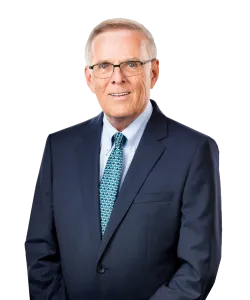What You May Have Missed: Cost-Saving Initiatives and Best Practices for Exempt Organizations
On November 9, Arent Fox, Aronson LLC, and Morgan Stanley hosted an executive summit for exempt organizations that featured strategies for making and saving money and tips on top governance issues.
Below is a brief recap of key takeaways. If you have any questions, don’t hesitate to contact our Nonprofit team.
Before the panel discussions, keynotes were delivered by former United Way CEO and Chair of the Alexandria, Virginia Chamber of Commerce Joe Haggerty and Senator Byron Dorgan, the former US Senator and Congressman from North Dakota and a senior policy advisor at Arent Fox.
“Nonprofits should be providing the appropriate level of information to the public, this includes full disclosure, open conversations, innovated use of required reporting and tying metrics to outcomes,” said Mr. Haggerty. “For example, instead of trying to hide salary info in an appendix, the United Way included its entire compensation plan in the 990 and added information on who they benchmark against and the overall philosophy of compensation.”
With a new administration and Congress set to take control in January, Senator Dorgan flagged several issues exempt organizations should be focused on, including:
- Charitable deductions. Whatever happens in tax reform, exempt organizations have to be wary that they do not reduce the tax incentives for charitable deductions.
- Tax exempt status. Congress could hold oversight hearings and evaluate nonprofit tax exempt organizations. A recent example: the NFL revoking its tax exempt status.
- A potential increase in the excise tax in investment earnings.
- Increased scrutiny on the heels of the New York Attorney General’s investigation into the Trump Foundation. President-elect Trump’s picks to lead the Federal Trade Commission and the US Department of Justice will determine the administration’s priorities on antitrust enforcement.
The first panel — featuring Arent Fox Nonprofit leader Richard Newman, Aronson partner Rob Eby, and Matthew Teems, Vice President and Financial Advisor for Morgan Stanley— focused primarily on strategies for making and saving money. Those guidelines include:
- Five percent may no longer be a reasonable earning expectation.
- In 2017, real estate may be a tool for exempt organizations looking to reduce expenses and in some cases generate tax exempt income.
- Not all tax exempt organizations will qualify for the real estate tax exemption, so care should be given to doing lease/buy comparisons.
- Some tax exempt organizations qualify for indirect federal tax subsidy through the use of tax exempt bonds to finance real estate acquired for exempt use.
Good governance was the central theme for the second panel, which included Mr. Teems, Gregory Plotts, Aronson LLC partner in the Nonprofit and Association Industry Services group, Arent Fox Nonprofit partner Sean Glynn, and Allen Hudson, vice president of Commercial Insurance at Sahouri Insurance. The group focused on investment committee responsibilities, audit committee responsibilities, and new accounting standards. Major takeaways include:
- Investment Committees should draft an Investment Policy Statement (IPS) detailing objectives of the Investment Portfolio.
- Audit Committees must understand critical accounting policies, key judgments and estimates, and how they affect financial results.
- Relationship with auditors is important. They should be selected carefully, with attention paid to their qualifications, independence, and performance. Don’t forget to hold an executive session with auditors.
- Three new Accounting Standards will take effect soon: Financial Presentation for Exempt Organizations (Effective in 2018); Revenue Recognition (Effective in 2019); and Lease Accounting (Effective in 2020).
Contacts
- Related Industries
-
Read Time
4Minutes


